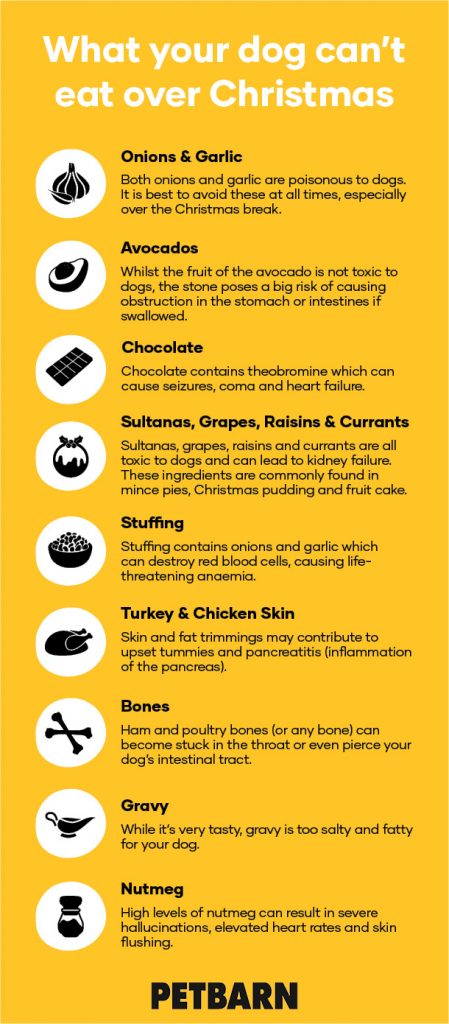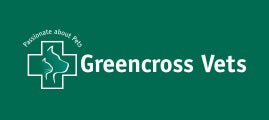Christmas holidays mean extra food for a lot of humans. Pets are often fed leftover human food which can sometimes be harmful to them. Here’s what you should avoid feeding your dog during the festive season.

What your dog can’t eat over Christmas
Onions & Garlic
Both onions and garlic are poisonous to dogs. It is best to avoid these foods at all times, especially over the Christmas break.
Avocados and other stone fruit
Whilst the fruit of the avocado and other stone fruit is not toxic to dogs, the stone poses a big risk of causing obstruction in the stomach or intestines if swallowed.
Chocolate
Chocolate contains theobromine which can cause vomiting, diarrhea, irregular heartbeats and in severe cases, seizures and death. Dark cooking chocolate contains high levels of theobromine so take extra care when baking at Christmas to keep your pets safe.
Sultanas, Grapes, Raisins & Currants
Sultanas, grapes, raisins and currants are all toxic to dogs and can lead to kidney failure. These ingredients are commonly found in mince pies, Christmas pudding and fruit cake.
Stuffing
Stuffing contains onions and garlic which can destroy red blood cells, causing life-threatening anaemia.
Turkey/Chicken Skin
Skin and fat trimmings may contribute to upset tummies and pancreatitis (inflammation of the pancreas). Give your pet some tasty pet treats instead.
Bones
Ham and poultry bones (or any bone) can become stuck in the throat or even pierce your dog’s intestinal tract. Don’t give your pet cooked bones of any type and ensure the rubbish is secure so your pet doesn’t help themselves!
Gravy
While it’s very tasty, gravy is too salty and fatty for your dog and may contribute to pancreatitis.
Nutmeg
Whilst uncommon, very high levels of nutmeg (myristicin is the principal aromatic constituent of the volatile oil of nutmeg) can result in severe hallucinations, elevated heart rates and skin flushing.
If you suspect that your dog has consumed any of the above foods or something else that they shouldn’t have, contact your local Greencross Vets or closest emergency vet for advice.

